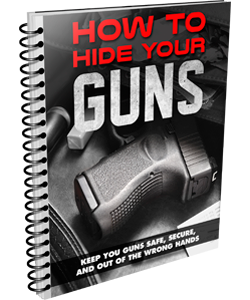
“If everybody’s stressed out…it’s hard to pick out anybody that might be outside the norm.” –former US Air Marshal Clay Biles
For example, the Canadian government refused a 2015 request by Air Canada to provide reimbursement, tax credits, or per-trip airfare for marshal’s travel. The airline has requested access to airline risk assessments complied by the Royal Canadian Mounted Police, Canada’s marshal administrator.
Also among the airline's requests was to devise a money-saving collaborative decision process with the RCMP marshal sector to deciding which flights are sufficiently risky to warrant air marshal protection.
Air Canada also complained about the presence of marshals on its empty flights which the airline uses to relocate planes to a new departure location. Their stance is that they shouldn’t be responsible for marshals’ work commutes.
In the U.S., elected officials who oppose the program say it’s ineffective and costly. Congressman John J. Duncan (R-TN) groused in a 2015 NPR interview, “I think it's the most needless, useless, wasteful program almost probably in the federal government, and that's [sic] saying quite a bit.”
Duncan concluded, based on an analysis of the more than 3,000-agent program, which costs about $900 million per year, that it’s not worth the deterrent effect it was established, in part, to provide. “I think at their height, they did four arrests one year. That was costing over $200 million per arrest,” he said.
The congressman’s complaints span two-thirds of the Federal Air Marshal’s mission, which is “to detect, deter, and defeat criminal and terrorist activities that target our Nation’s transportation systems.”
Those 3,000 personnel are staffing a U.S. domestic commercial flight schedule of about 34,000 per day, enough to accompany 11 percent of flights. Former marshals have claimed the number is much less, more like one percent, in part because flights with two agents aboard are counted twice.
Similar concerns about costly practices were raised by Air Canada. At least one initial complaint by the airline, that marshals were taking advantage of free food in the air, was found to not hold water when actual flight and payment records were examined.
Unlike some European air marshal programs, the United States’ Federal Air Marshal system has been around since well before Sept. 11, 2001. It was established in 1962, and attracted little controversy until it was placed under the new Transportation Security Administration after 9/11.
Unlike the Canadian system, it’s primarily the brass of the U.S. programs who’ve drawn not just criticism but lawsuits that have reached the Supreme Court and continue today.
Duncan’s complaints appear to have at least some merit, when at least two FAM veterans have turned whistleblower, publishing books and filing suits with common themes of bureaucratic policies and practices that have endangered the security of flights and officers themselves, lavish party and travel habits, and nepotism. Former FAM director Robert Bray's 2014 resignation after a get-guns-free scandal apparently hasn't done enough to change FAM culture.
FAM veteran Clay Biles wrote Unsecure Skies, a personal account of the problems in FAM and its overseeing agency. In addition to corruption, he gives examples of over-reliance on machines for risk detection, while training of TSA agents remains inadequate. He thinks the marshal service suffered from an influx of former Secret Service personnel into agency leadership positions shortly after 9/11, as the new personnel had little knowledge of aviation.
In an interview, Biles said the airport atmosphere TSA fosters makes it harder to detect a potential attack. “It’s such a stressful environment at checkpoints in the United States that it’s hard for individuals who have training to detect suspicious activity to really pick up on anything that might be suspicious. If everybody’s stressed out, [sic] it’s hard to really pick out anybody that might be outside the norm. At other airports around the world it’s a lot less stressful, and it’s easier to pick out people that might have bad intentions or might be trying to hide some kind of nefarious activity.”
Another former FAM agent has been provided protected whistleblower status. Agent Robert McClain was charged with public disclosure of sensitive security information by Department of Homeland Security . His case was heard by SCOTUS in November 2014. He has attained repeated legal victories over his former employer, having provided substantial evidence that his actions on behalf of national security were ignored, suppressed, or rebuffed by TSA on a repeated basis.

McClain's legal actions include claims to have been passed over for promotions against policy thanks to a combination cronyism and punishment for speaking up. His website provides details of his work and tumultuous legal history with the agency.
There are vast differences, obviously, in the way airline security is operated and perceived in Europe versus North America. For all the bureaucratic drama that's plagued Canadian and North American agencies, the jet-as-weapon technique has not been repeated since 9/11. Duncan said “the problem was solved when we locked the cockpit doors.” Biles feels that in-plane bombs are a much more likely tactic, and that current measures aren’t helpful. If recent airline bombings and disappearances worldwide are any guide, though, perhaps they are.
Sound Off Gun Carriers! Do you believe the Air Marshall program is still valid?




